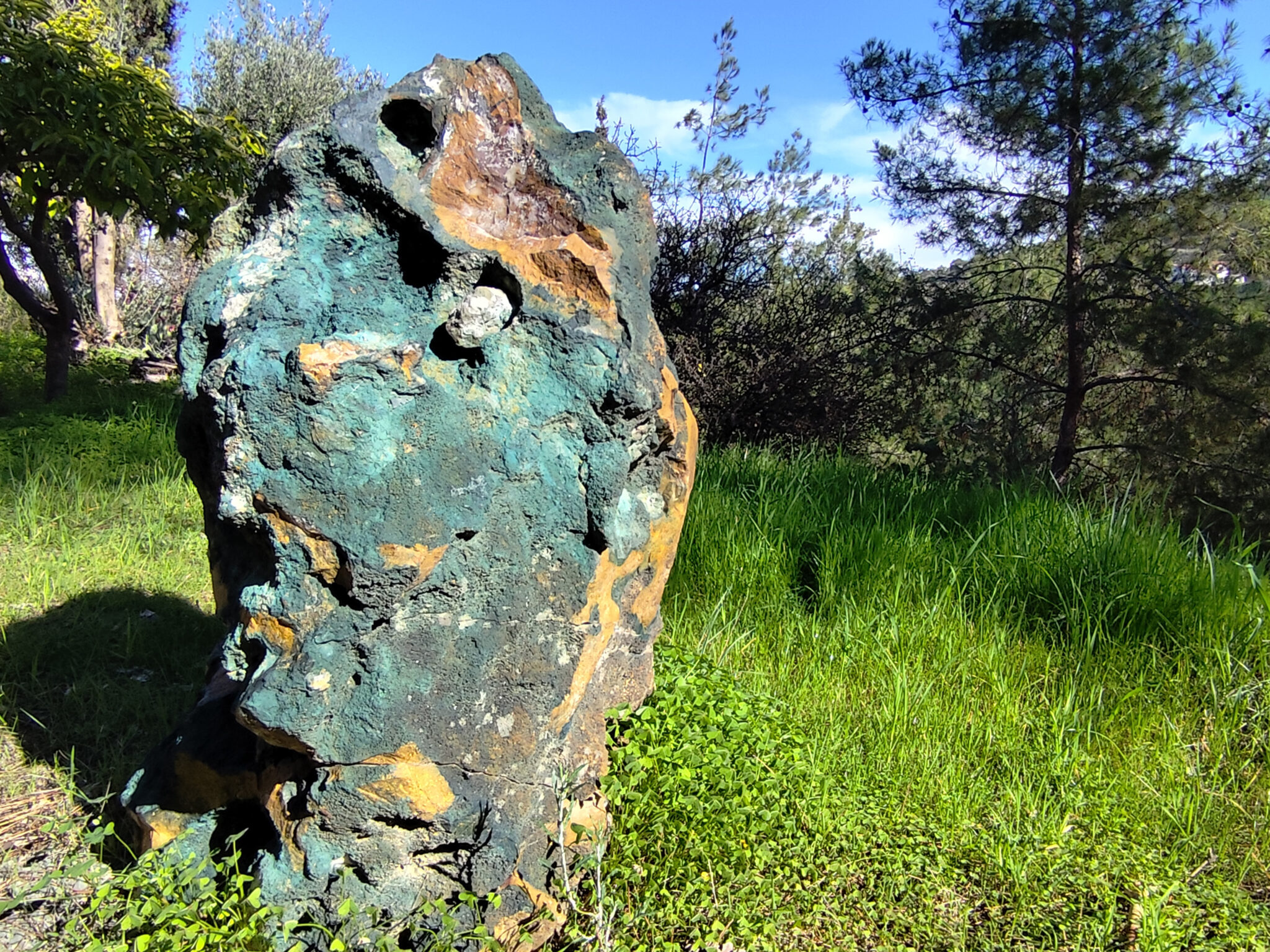When Ghosts Sound like Birds
Published 3 February 2025 in Workshops
8 February 2025 Kapedes, Cyprus
Concept & Facilitation by
Denise Araouzou
Organised by
Celadon Centre for Arts & Ecology
Concept & Facilitation by
Denise Araouzou
Organised by
Celadon Centre for Arts & Ecology
When Ghosts Sound like Birds is a workshop conceived for the international conference and parallel programme on artistic practices and ecology, Learning with mountains: recalibrating how we understand art and planet, taking place in Nicosia and Kapedes, Cyprus, 5-8 February 2025. It is organised by Celadon Centre for Arts & Ecology and the programme can be found here.
Workshop Description
With the sixth mass extinction underway, this workshop delves into the field of queer death studies to reflect on and challenge normative perceptions of death, dying and mourning of othered nonhumans and humans. Carefully pulling these subjects closer from the ‘safe’ distance they usually occupy, this workshop attempts to weave a shroud that maps a constellation of the necro-political (Mbembe) mechanisms we are entangled in and our varying socio-ecological immediacies and implications to (invisibilised) death, so that we can begin to identify paths where grief and radical hope can become transformative.
This workshop draws from the work of queer death studies scholars, indigenous, decolonial and posthumanist theorists, ecologists and practitioners to scaffold the learning space. It also builds on the collaborative research from working with painter Eleni Odysseos on her exhibition ‘An Elegy for Coming Undone’ as its curator. Our conversations revolved around the socio-ecological, ethical and historical ties that connect Cypriot sericulture to seasons, soils, women’s labour and collectives, as well as rituals, spells and superstitions of ‘undoing’ and the killing of silkworms.
References
Becoming Monster Festival. (2024). Becoming Monster Festival. Emergencenetwork.org. https://becoming-monster.emergencenetwork.org
Butler, J., Taylor, S., & Taylor, A. (2010). Examined Life – Judith Butler & Sunaura Taylor [YouTube Video]. In YouTube. https://www.youtube.com/watch?v=k0HZaPkF6qE
Freire, P. (1968). Pedagogy of the oppressed. Bloomsbury Academic.
Igor Zabel Association. (2022, November 17). So Close: Ecologies of Life and Death, International Conference / Igor Zabel Award 2022. YouTube. https://www.youtube.com/watch?v=ygwfL-xSmqU
Jarman, D. (1993). Blue [Film].
Ko, A., & Ko, S. (2017). Aphro-ism : essays on pop culture, feminism, and black veganism from two sisters. Lantern Books.
Lowenhaupt Tsing, A., Swanson, H., Gan, E., & Bubandt, N. (2017). Arts of living on a damaged planet. University Of Minnesota Press.
Lugones, M. (2003). Pilgrimages = Peregrinajes : theorizing coalition against multiple oppressions. Rowman & Littlefield.
Lykke, N. (2021). Vibrant Death: A Posthuman Phenomenology of Mourning. Bloomsbury Publishing.
Machado de Oliveira Andreotti, V. (2021). Hospicing Modernity: Parting with Harmful Ways of Living. North Atlantic Books.
Malm, A. (2016). Fossil Capital: the Rise of steam-power and the Roots of Global Warming. Verso.
Mbembe, A. (2019). Necropolitics (S. Corcoran, Trans.; pp. 66–92). Duke University Press.
McRuer, R. (2006). Crip theory: Cultural signs of queerness and disability. New York University Press.
Museum of Fine Arts, Boston. (2019, April 18). Cecilia Vicuña: Disappeared Quipu. YouTube. https://www.youtube.com/watch?v=Tu4_Ne3iZuY
Peterson, J. D., Lemos Dekker, N., & Olson, P. R. (2024). Death’s Social and Material Meaning beyond the Human. Policy Press.
Radomska, M. (2024). Mourning the More-Than-Human: Somatechnics of Environmental Violence, Ethical Imaginaries, and Arts of Eco-Grief. Somatechnics, 14(2), 199–223. https://doi.org/10.3366/soma.2024.0433
Radomska, M., Citlalli Rojo Gómez, M., Pevere, M., & Haapoja, T. (2021). Non/Living Queerings, Undoing Certainties, and Braiding Vulnerabilities: A Collective Reflection. Artnodes, 27. https://doi.org/10.7238/a.v0i27.374989
Radomska, M., Mehrabi, T., & Lykke, N. (2019). Queer Death Studies: Coming to Terms with Death, Dying and Mourning Differently. An Introduction. Kvinder, Køn & Forskning, 3-4, 3–11. https://doi.org/10.7146/kkf.v28i2-3.116304
Sapara Barton, C. (2024). Tending Grief. North Atlantic Books.
Vicuña, C. (n.d.). Quipus. Cecilia Vicuña. https://www.ceciliavicuna.com/quipus
About the conference

Learning with mountains*; recalibrating how we understand art and planet.
Contemporary art demonstrates a deep engagement with planetary issues and increasingly aims at shifting our attention to the natural world, ecology and the need to develop environmental consciousness. Since the 1970s, cultural practitioners have been active in trying to sensitise publics on issues related to the planet, climate change and the ecological commons– land, water and air. Through soft practices, the creation of collectives and communities, the production of eco-conscious artworks, and activist involvement in ecological movements, they have contributed to a recalibration of our relationship with the natural world. What is more, interdisciplinary collaborations between artists, scientists and environmental organisations have exposed the impact of colonialism, extractivism, ecocide, capitalism, neoliberalism, large scale agricultural production methods and systems of exploiting the environment.
Celadon Center for Arts & Ecologies is a non-for-profit arts organisation, based in the village of Kapedes in rural Nicosia. It focuses on ecology, queer discourses and civic/social issues through art and culture. Celadon aims to create a collaborative framework, where cultural producers, artists and researchers come together to cultivate artistic and critical thinking, and ecological awareness. Its goal is to nurture a creative long lasting community, operating within an expanded network of exchanges with like-minded people and organisations, locally and internationally. It was instigated in 2024 by a small group of art historians/theoreticians and practitioners–Gabriel Koureas, Elena Parpa, Leontios Toumpouris and Evi Tselika.
* Aldo Leopold
